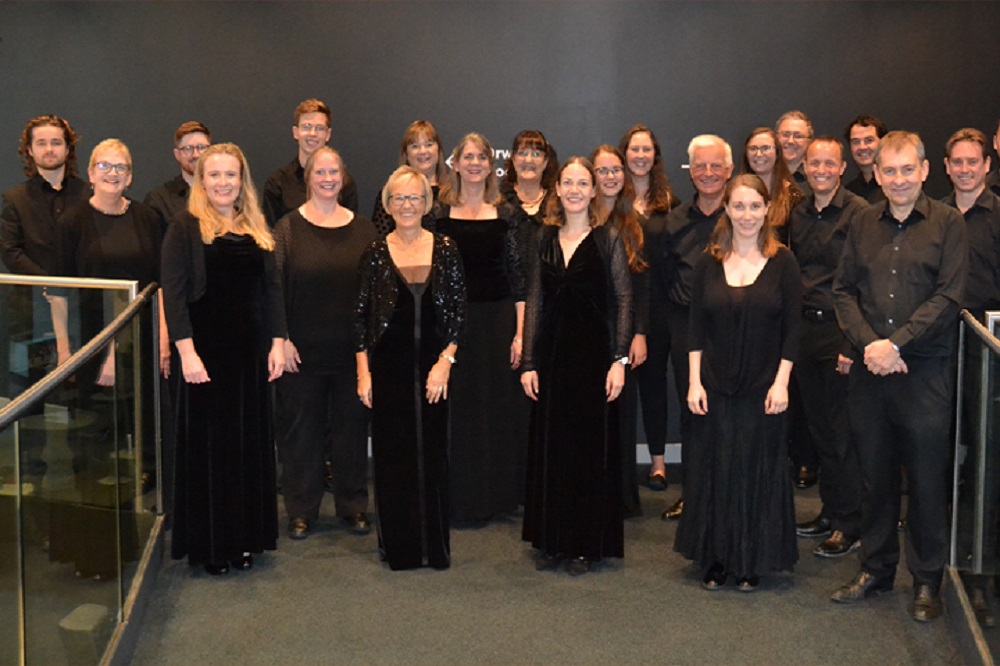Review: Cantemus Chamber Choir, Dora Stoutzker Concert Hall, Cardiff

Peter Collins
Is April really the cruellest month? Perhaps. But it didn’t feel like that as we walked through sunlit Cardiff parkland on a near-perfect spring afternoon to get to this fine concert hall for a programme of music for Holy Week and Easter.
Called The Glory of Italy, the concert gave the excellent Cantemus Chamber Choir the opportunity to demonstrate why it is one of the finest choirs in the country.
This was the first time in more than two years that many of us in the audience had listened to the choir live in concert. There was certainly an atmosphere of delight and hope as the choir members walked on stage at this acoustically excellent venue at the Royal Welsh College of Music and Drama.
The programme began with Allegri’s well-known and much-loved Miserere and ended with Domenico Scarlatti’s Stabat Mater which, according to the programme notes, is considered a masterpiece in choral literature.
Between these two towering works the choir explored some less well known pieces by Felice Anerio, Antonio Caldara and Antonio Lotti, alongside works by Pergolesi, Rossini, Palestrina and Monterverdi.
The concert lasted just over an hour, but given the solemn intensity of the music one felt that it was quite long enough. Indeed, the searching Intensity of the choral offerings reminded one of TS Eliot’s view that this time of year can mix memory and desire in a rather cruel way.
Spine-tingling
The choral pacing and fine balance of voices in the choir’s performance of Allegri’s Miserere was a delight. The piece is best known for the embellishments written down well over a century after Allegri’s death, including the top “C” sung by the soprano. It was indeed a spine-tingling moment when in this performance soprano Rebecca Donkin soared above a solo quartet situated high up in the concert hall.
The choir, directed with quiet authority by Huw Williams, gave a splendidly atmospheric performance of Claudio Monteverdi’s Christe adoramus te, and an interpretation of Palastrina’s Sicut Cervus that was both plangent and joyful.
Moving
One would have liked to have heard more of Pergolesi’s Stabat Mater than the short exert performed here with assurance by soloists Helen Pugsley and Rebecca Donkin. Pergolesi’s setting is a moving, profoundly human picture of a grieving mother which is even more powerful when one realises that he completed it just weeks before his death at the age of 28. This choir would surely do justice to the piece in its entirety.
The singers gave a confident and assured performance of Anerio’s Christus factus est, while there were moving and expressive accounts of Caldara’s Laboravi in gemitu meo, Rossini’s O salutaris hostia, and Antonio Lotti’s Crucifixus.
The choir embraced the dramatic sweep of the piece that ended the concert, Domenico Scarlatti’s Stabat Mater, singing with emotion and clarity that sent us back out into the spring sunshine confident in the promise of Easter.
Support our Nation today
For the price of a cup of coffee a month you can help us create an independent, not-for-profit, national news service for the people of Wales, by the people of Wales.





